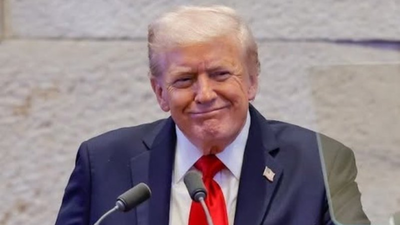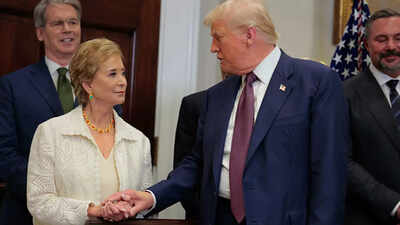Trump’s higher education compact: Which universities have not rejected it yet and why

The Trump administration recently approached nine major universities with a proposal linking federal funding to alignment with the president’s priorities. The plan, reported by The New York Times, included conditions stating that academic freedom is not absolute and that universities might need to close units that “punish, belittle, and even spark violence against conservative ideas.” Schools endorsing the compact could be eligible for additional federal funding.Seven universities rejected the plan, citing concerns about academic freedom, merit-based research funding, and institutional independence. Vanderbilt University and the University of Texas are the only two that have not fully declined the proposal.
University of Texas open to possibilities
The University of Texas is the only institution to indicate it might be willing to sign the proposal quickly, reports NYT. Officials have not publicly detailed their reasoning. Their response suggests openness to dialogue with the administration or exploration of potential funding benefits.
Vanderbilt University in cautious consideration
According to The New York Times, Vanderbilt University did not formally accept the proposal. Chancellor Daniel Diermeier expressed reservations, emphasising that the university would provide further feedback on higher education policy. He highlighted the importance of academic freedom, free expression, and merit-based research funding.Diermeier noted that these principles are essential for universities to contribute meaningfully to society. Vanderbilt’s approach reflects careful consideration rather than outright refusal.“The North Star for Vanderbilt has always been that academic freedom, free expression, and independence are essential for universities to make their vital contributions to society,” Diermeier wrote in an open letter, according to The New York Times.
The universities that said no
Seven universities have explicitly rejected the Trump administration’s compact. These include:
University of Arizona - Brown University
- Dartmouth College
- Massachusetts Institute of Technology
- University of Pennsylvania
- University of Southern California
- University of Virginia
Leaders of these institutions emphasised that academic freedom, merit-based research funding, and institutional independence are foundational principles. The University of Arizona’s president, Suresh Garimella, noted in an open letter that while some ideas in the proposal “deserve thoughtful consideration,” the terms could not be accepted.
What the compact demands
The Trump administration’s plan outlined specific expectations for universities:
- Academic freedom would not be absolute.
- Units that target or punish conservative ideas might be closed.
- Endorsing universities could receive additional federal funding.
Most universities argued these terms conflict with long-established principles of independence and merit-based research.
Administration response
May Mailman, a senior adviser leading the Trump strategy, told Fox Business that universities were asked to provide feedback by a set deadline. Mailman said that the administration values input from schools and expected responses ranging from acceptance to reservations, according to The Times.The rejection of the compact by most universities reflects concern over government influence on research and academic priorities. Vanderbilt’s reserved stance and the University of Texas’ openness show that some institutions are still exploring engagement rather than outright refusal. The proposal and its reception may influence future federal-university relationships and funding strategies.






